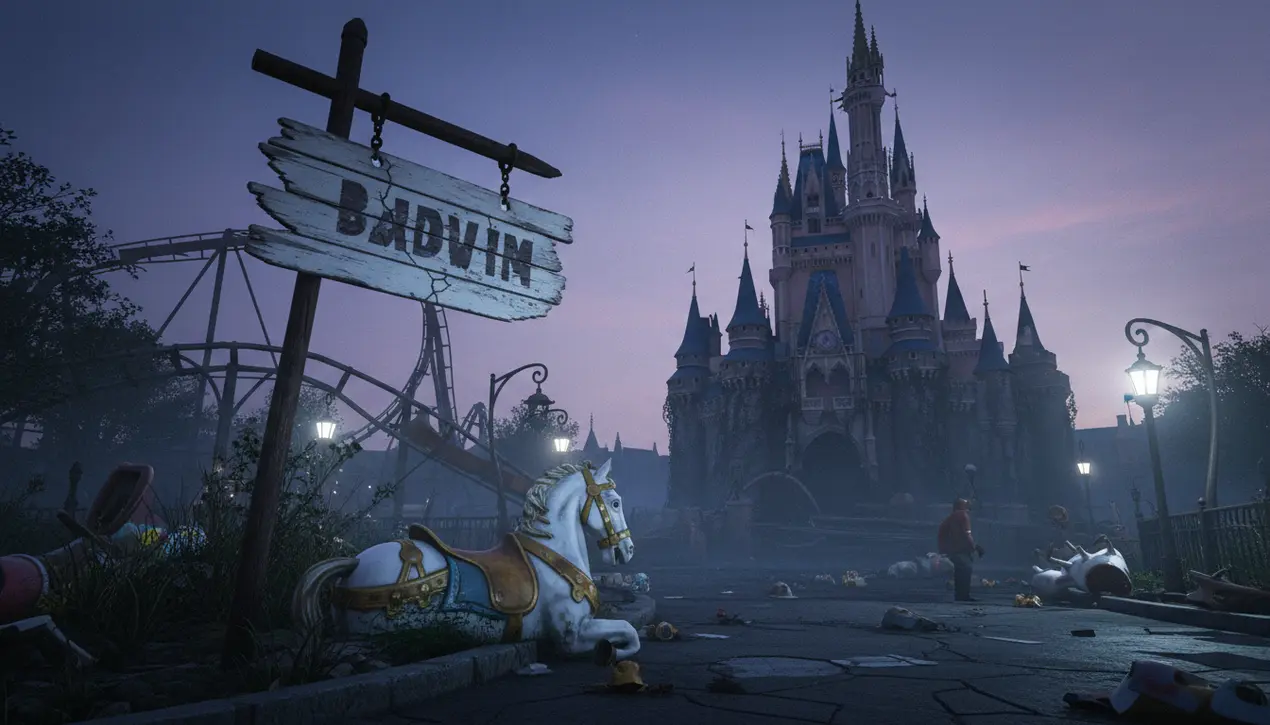
Entertainmenttv & streamingStreaming Platforms
Disney stock tumbles as TV business slides further toward collapse
AM
Amanda Lewis
2 hours ago7 min read
The House of Mouse is showing cracks in its foundation, and the latest earnings report reads like a tragic third act where the hero confronts their own obsolescence. Disney's stock took a 5% nosedive in premarket trading, a visceral reaction from Wall Street to a quarterly revenue of $22.46 billion that narrowly missed analyst expectations. This isn't merely a bad quarter; it's a symbolic collapse of an empire built on the linear television model.The entertainment division, that sprawling conglomerate of streaming, legacy networks, and theatrical releases, saw a 6% overall revenue drop, a figure that belies the seismic shift happening beneath the surface. While the streaming front offered a glimmer of hope—Disney+ and Hulu collectively added 12.4 million subscribers to reach 196 million—this victory is pyrrhic. It’s the classic tale of cannibalization, where the future eats the present.The real story, the one with dramatic weight, is the stunning 16% plunge in linear networks revenue to a mere $107 million, coupled with a 21% freefall in operating income. This isn't just a decline; it's a controlled demolition.The company’s letter to shareholders painted a stark picture, attributing the domestic linear collapse to a perfect storm of evaporating viewership and a $40 million negative impact from the absence of political advertising compared to the previous year. It’s as if the audience has left the theater, and the sponsors have followed them out the door.Theatrical releases, once the crown jewels of Disney's content strategy, also saw declines, contributing to these mixed, almost schizophrenic, results. Even the sports division, often a reliable bastion, presented a conflicted narrative: a 2% revenue increase to $4 billion was undermined by a drop in operating income, with domestic ESPN—the once-unassailable titan of sports broadcasting—seeing a 3% decline.The company cited higher marketing and production costs, a telling sign of the immense financial pressure required to keep the lights on in the age of exorbitant sports rights deals. All of this unfolds against the backdrop of a very public, very messy carriage dispute with Google's YouTube TV, which saw Disney's channels go dark for subscribers.Analysts estimated this two-week blackout could cost Disney $60 million, a tangible consequence of the high-stakes poker game that defines modern content distribution. On the earnings call, CEO Bob Iger played the part of the seasoned negotiator, stating they are 'hopeful' to close the deal, but his words felt like a plea to a shifting landscape.The broader context here is the inexorable trend of cord-cutting, a mass migration of consumers from bundled cable packages to the à la carte world of streaming. Ad dollars, once the lifeblood of broadcast and cable, are now chasing those eyeballs, creating a feedback loop that accelerates the decline.This is more than a financial report; it's an obituary for an era. Disney finds itself in a race against time, trying to build a profitable streaming future fast enough to offset the accelerating collapse of its linear past. The curtain is falling on one act, and the next is still being written, with no guarantee of a happy ending.
#Disney
#earnings
#streaming
#linear TV
#cord-cutting
#stock decline
#featured
Stay Informed. Act Smarter.
Get weekly highlights, major headlines, and expert insights — then put your knowledge to work in our live prediction markets.
Related News
Comments
Loading comments...
© 2025 Outpoll Service LTD. All rights reserved.